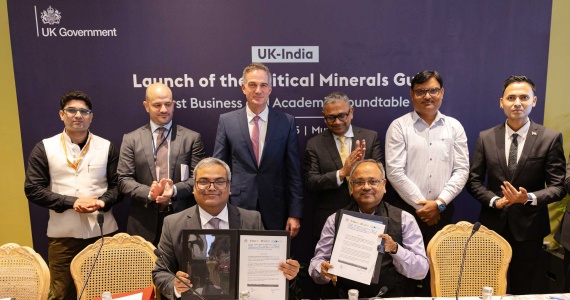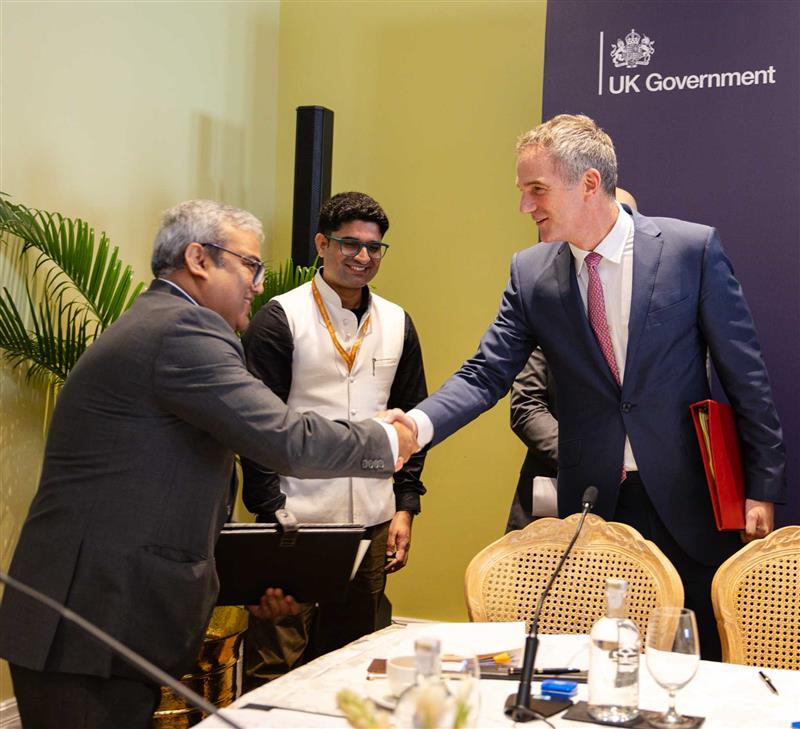Prime Minister’s visit to India highlights Cambridge-led UK–India collaboration on critical minerals

The Industrial Resilience Research Group at the Institute for Manufacturing (IfM) played a key role during the official visit of The Right Honourable Sir Keir Starmer, Prime Minister of the United Kingdom, to India. During the visit, both nations reaffirmed their strategic commitment to strengthening the resilience of critical minerals supply chains and supporting green industrial growth.
As part of the visit, the Republic of India and the United Kingdom jointly announced the establishment of a Satellite of the UK–India Critical Minerals Supply Chain Observatory at TEXMiN–IIT(ISM) Dhanbad. This marks the launch of Phase II of the UK–India Critical Minerals Supply Chain Observatory — a flagship collaborative initiative led by the University of Cambridge and supported by India’s Department of Science and Technology (DST), Government of India
At the India–UK Critical Minerals Roundtable and Industry Guild, chaired by the Secretary of State for Business and Trade, The Right Honourable Peter Kyle MP, a Letter of Intent (LoI) was signed between Professor Sukumar Mishra, Director of IIT(ISM) Dhanbad, and Dr Mukesh Kumar, Director of the Global Supply Chain Observatory, University of Cambridge. The LoI formalises the creation of the Critical Minerals Supply Chain Satellite Observatory at IIT(ISM) Dhanbad under the aegis of DST. This milestone was later highlighted in the joint statement made by Prime Minister Keir Starmer and His Excellency Shri Narendra Modi, Prime Minister of India.

Dr Mukesh Kumar said, “The establishment of a satellite of the UK–India Critical Minerals Supply Chain Observatory at TEXMiN IIT(ISM) Dhanbad marks a significant step forward in UK–India scientific and industrial collaboration. Together, we are developing digital supply chain infrastructure that builds transparent, traceable and resilient supply chains, supporting the green energy transition and sustainable industrial growth.”
The University of Cambridge’s participation in this high-level bilateral engagement underscores its commitment to advancing research and technology platforms that enhance global industrial resilience. Through this initiative, Cambridge and its Indian partners are combining data science, artificial intelligence and policy innovation to strengthen the visibility, traceability and transparency of critical mineral supply chains that are essential for the world’s transition to clean energy.
Find out more about the Global Supply Chain Observatory: https://www.ifm.eng.cam.ac.uk/research/industrial-resilience/global-observatory/









